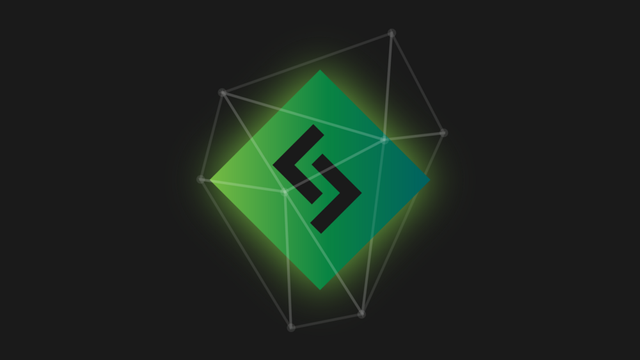
Hey Everyone,
The development pace in the Loki office has been consistent and quicker than expected, and I’m happy to announce that we will be launching Service Nodes well ahead of schedule. A huge thank you to our two main Service Node developers, jcktm and Doy-lee, who have been putting in long hours to get this out. This will mark the first time Proof of Service has been implemented on a CryptoNote coin and we’re really excited to have everyone onboard to test it out.
How will the rollout/update process work?

Beginning on 09/08/2018 (August 9th) the testnet will be restarted with Service Nodes enabled. The testnet will operate for two weeks in this state. During this period, we will make final changes to the Service Node software, fix bugs as they are reported to us, and add features which will be useful for the final release. Bugs found by community members in Service Node software will be rewarded with bounties at the discretion of the Loki team and depending on severity.
On 23/08/2018 (August 23rd) we anticipate the release of the final version of the Service node software, including any bug fixes/changes we found in the Service Node testnet period. This release marks a mandatory upgrade period between 23/08/2018 and 20/09/2018. In this period we will contact exchanges, pools, and miners. All clients will need to update their software. Testnet will continue operation with the new changes, however on 20/09/2018 (September 20th) mainnet and stagenet will hard fork and Service Nodes will be released in a production environment.
Service Nodes already set up on testnet will NOT rollover to mainnet, so when the mainnet forks everyone will have the same opportunity to begin operating a service node using real Loki.
What do Service Nodes do in this update?
As part of the rollout process we need to slowly introduce Service Node functionality. In this upcoming fork, Service Nodes will only have the ability to register and receive rewards. There is no complex testing functionality yet enabled. In this fork Service Nodes will not route data other than propagating blockchain data to their peers. However to be rewarded, Service Nodes that are online automatically transmit pings to the network. If a ping is not submitted each hour a node is assumed to be offline and will be deregistered.
More complex functionality is being heavily developed as we speak and will be introduced to Service Nodes over the coming months. However, it is essential that we deploy the base functionality of Service Nodes before we can begin integrating more complex testing and begin routing packets on top of service nodes.
Remaining features that will be introduced over the coming months:
Blink (Instant Transactions)
Lokinet (Packet Routing & SNApps)
Loki Messenger (Message Storage)
Enforced Remote Nodes (Light Client Improvements)
How can I register a Service Node on testnet?
You will need the alpha software from here, and instructions on how to use it are here, this also includes a guide on how pooled staking works. This guide assumes you know how the CLI and daemon work. If you don’t, a complete guide on staking is in the works, so sit tight!
To test Service Nodes, you will need:
100 testnet Loki
A VPS, or highly available home server
The Loki CLI wallet, and the Loki Daemon
On testnet, the staking requirement will be 100 Loki, so everyone can get in and test. We will distribute funds from the testnet foundation wallet, so just ping one of the admins in the Loki telegram or discord and we will send you some testnet Loki to stake. You can also mine testnet loki by running start_mining <address in lokid.
We’ve also shortened the staking duration to just 2 days in the testnet, so you should be able to test restaking over the next couple of weeks to familiarise yourself with the process.
This would also be a good time for anyone seeking to pool their staking requirement to test out how that functionality works. So jump on testnet and start testing.
How can I provide feedback or submit bugs?
For general feedback and discussion about the software, you can go to the brand new #service-node-testing discord channel.
If you spot bugs in the code or add features to it, you should submit an issue or pull request to GitHub. The devs will review the bugand include any necessary fixes in the final release.
What are the requirements for setting up a Service Node on Mainnet?
We have been testing various VPS providers across the course of the last few months and we will be making some recommendations based on positive experiences. In the beginning Service Node operators will have much more choice about where they set up their nodes due to the significantly lower stresses they face. When Loki Messenger and Lokinet are finished, the bandwidth requirements will become more onerous and low performance nodes will have to upgrade hardware and network connections or risk being kicked off the network by automated bandwidth testing systems. When a date for Lokinet is set, we will warn Service Node operators at least 30 days in advance so that they can upgrade their servers.
Where can I go for more information on Service Nodes?
We are currently setting up a webpage to act as a central point for operators to stay updated with all of the latest information. This portal will be updated as we produce documentation on Service Nodes. We want to make setting up a Service Node as clear as possible, and provide in-depth explanations on how the process works, so operators don’t end up making expensive mistakes.
We are updating the channels in discord to include a dedicated Service Nodes category, so we can have more in-depth discussions about the software and provide support to those having difficulty.
Very exciting times! Let’s get testing, LOKIGANG!
Originally published at loki.network.